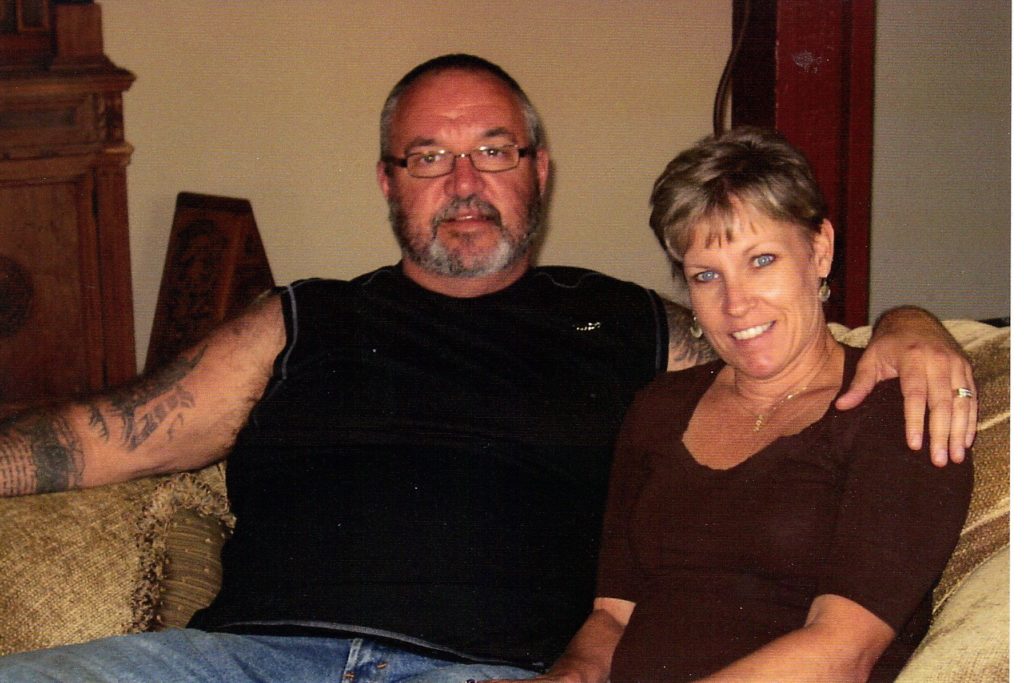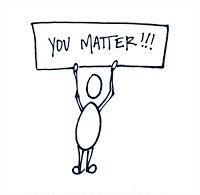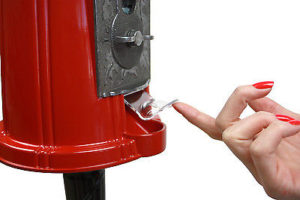
“I feel like I’m either too much or not enough,” my then-teenage daughter shared in a moment of heart-wrenching vulnerability. She shared the words tentatively – almost apologetically – with tears brimming in her eyes, like she was revealing a deep, dark secret that no one else could possibly understand.
They were words that had been holding her captive for a good part of her adolescent life. The messages spawned fears about her own value and identity, the result of words spoken and wounds inflicted by others in her life. And as the words fell from her lips, I inwardly groaned.
It was easy to hold her and grieve with her, knowing that she had been carrying the weight of that terrible self-doubt for many months and maybe years. I assured her that she was absolutely worthy of love and more than adequate in every way that mattered. Yet even into her adult life, she battled the messages, having felt those pronouncements upon her life issued by some of the young men she dated, whether through words, attitudes or actions.
Those words painfully identify what I believe may be a common belief system and perhaps an ongoing struggle for many of us.
The implications of such a profoundly destructive declaration over our own lives cannot be understated:
It seems I am too much. I am too high-maintenance, too much of a burden, a perpetual inconvenience. I am unworthy of anyone’s devoted time and attention.
It seems I am not enough. I am inferior in a thousand ways to just about everyone else. I don’t measure up. I am unworthy of love and affection.
Not only did I adopt those messages into my own life from a young age, but there are times they still haunt me.
My mother divorced my father when I was five, my sisters then nine and 12. We saw our father occasionally, but it felt like glorified babysitting more than quality time together. Soon after the divorce, my father married a woman with two children of her own, and she did not care a whit about me or my sisters.
My mother worked full-time. While she fulfilled her primary roles as a provider, she preferred to spend any free time in outings and hobbies that didn’t include us. While my sisters leaned on one another, I was the loner. I learned from a young age that my role was not to need my mother or ask for much of anything. It seemed she viewed me as little more than an obligation and a burden.
I was too much for her.
I tried to earn her love and approval. I got good grades, avoided getting into trouble and basically stayed out of her way. But my good grades didn’t yield any measure of praise; they were simply to be expected. When I was 11, some of my friends urged me to audition for a solo in our elementary school Christmas program. But when I told my mom I was considering auditioning, she responded coldly, “Why would you want to do that?” It was clear to me that she believed I would only embarrass myself – or her. So I didn’t even try.
I was not enough.
When I began dating in my later teen years, a few caring and personable young men expressed an interest in me, but it was I who almost always ended the relationships before they began. I had a deep-seated fear that they would see through me – how inadequate and broken I was. Surely they would quickly come to recognize that I was unworthy of their time and attention. Rather than face that kind of rejection, I chose to beat them to the punch. I wasn’t confident enough, strong or emotionally healthy enough. And as I looked at the other girls in my circle, I felt certain that I wasn’t pretty or outgoing enough either.
Then there were the guys who were more sarcastic and disrespectful. The feminine gender’s romantic, sentimental hearts were seen as an annoyance. Girls were really only good for one thing. Consequently, some young men treated me as though I should feel gratified to receive whatever paltry measure of attention they conceded to extend. Their attitudes and behaviors told me that I was too much – someone to be tolerated rather than appreciated. I was made to feel like I was too girly, too emotional and too needy.
Every shake of the head and every slight served to solidify those untruths and added to my belief that somehow everyone around me was superior to me, while I felt like a pretender.
Based on my history, it is no surprise to me that I married an abuser. The man I married was obsessed with me. I figured no one would ever love me like he did. He also had some health issues, which provided me with the opportunity to prove that I could love sacrificially while being low-maintenance at the same time. Our marriage could prove that I was enough without being too much. It felt like a valid perspective at the time.
True enough, the messages I had come to accept about myself and those around me made me an ideal victim. Throughout my abusive marriage, I received more of the same messages, that I was too much of a logistical, financial and emotional burden, and never quite worthy of his love, respect or protection. I sacrificed my value to accommodate the lie.
That was then; this is now.
For the past 13 years, I have been married to the best man I have ever known. When we first began to get acquainted, one of the first words I used to describe myself was “independent.” I saw that quality as a strength. As I came to know Doug, he told me that he knew what that word really meant, and that it kind of broke his heart.
He said that he knew I had no choice but to be independent, because I didn’t have anyone in my life who looked out for me, protected me, someone I could always count on to be my defender, my safe place.
He was right. And although I was touched by his perceptiveness, I was also terrified that he could see my wounds and longings so clearly. But how affirming it was to be able to finally bring the shield down, to know that when I was with him I was free to be less than perfect and vulnerable because he saw me as worthy of love – an overwhelmingly gracious, giving, protective, all-in, no-regrets kind of love. Whatever my shortcomings, Doug has never failed to assure me that I am never too much and always more than enough.
None of us is perfect, nor were we ever meant to be. We were created with our own unique gifts and strengths to complement one another.
Even knowing this, I confess there are times I occasionally struggle with doubts about my worth. I will quickly apologize for the slightest oversight, and my daughter still has to remind me to claim my space at the shopping mall. Sometimes I still feel guilty asking for help, or feel badly because things don’t turn out the way I planned, or I feel guilty for purchasing some small thing that makes me happy. After all these years, I am still trying to absorb the fact that I matter. I know I need to declare the truth and live like I believe it:
I am not too much, and I am more than enough.
Maybe you need to declare this too. If so, do yourself a favor and take a moment to rebuke the lies and speak that powerful, life-giving truth into your own life. Let me assure you…
You are not too much.
You are more than enough.
“…now God has placed the members, each one of them, in the body, just as He desired. If they were all one member, where would the body be? But now there are many members, but one body. And the eye cannot say to the hand, “I have no need of you”; or again the head to the feet, “I have no need of you.” On the contrary, it is much truer that the members of the body which seem to be weaker are necessary; and those members of the body which we deem less honorable, on these we bestow more abundant honor, and our less presentable members become much more presentable, whereas our more presentable members have no need of it. But God has so composed the body, giving more abundant honor to that member which lacked, so that there may be no division in the body, but that the members may have the same care for one another.”
I Corinthians 12:18-25
Amen.

###
Cindy Burrell
Copyright 2019, All Rights Reserved

 There is an appointed time for everything. And there is a time for every event under heaven… a time to weep and a time to laugh, a time to mourn and a time to dance. Ecclesiastes 3:1, 4
There is an appointed time for everything. And there is a time for every event under heaven… a time to weep and a time to laugh, a time to mourn and a time to dance. Ecclesiastes 3:1, 4 ###
### Consider the gumball machine; it’s a relational analogy that works.
Consider the gumball machine; it’s a relational analogy that works.